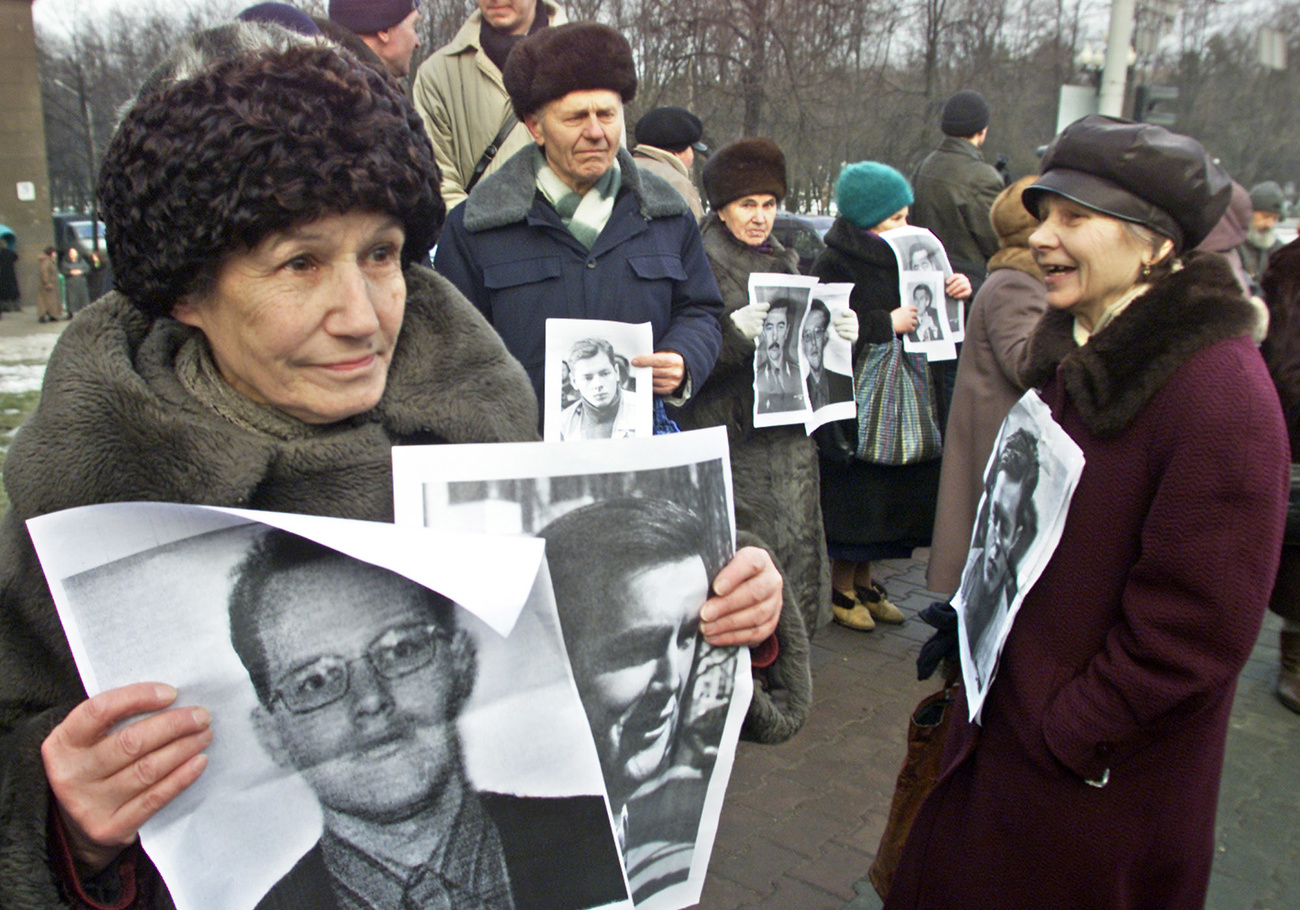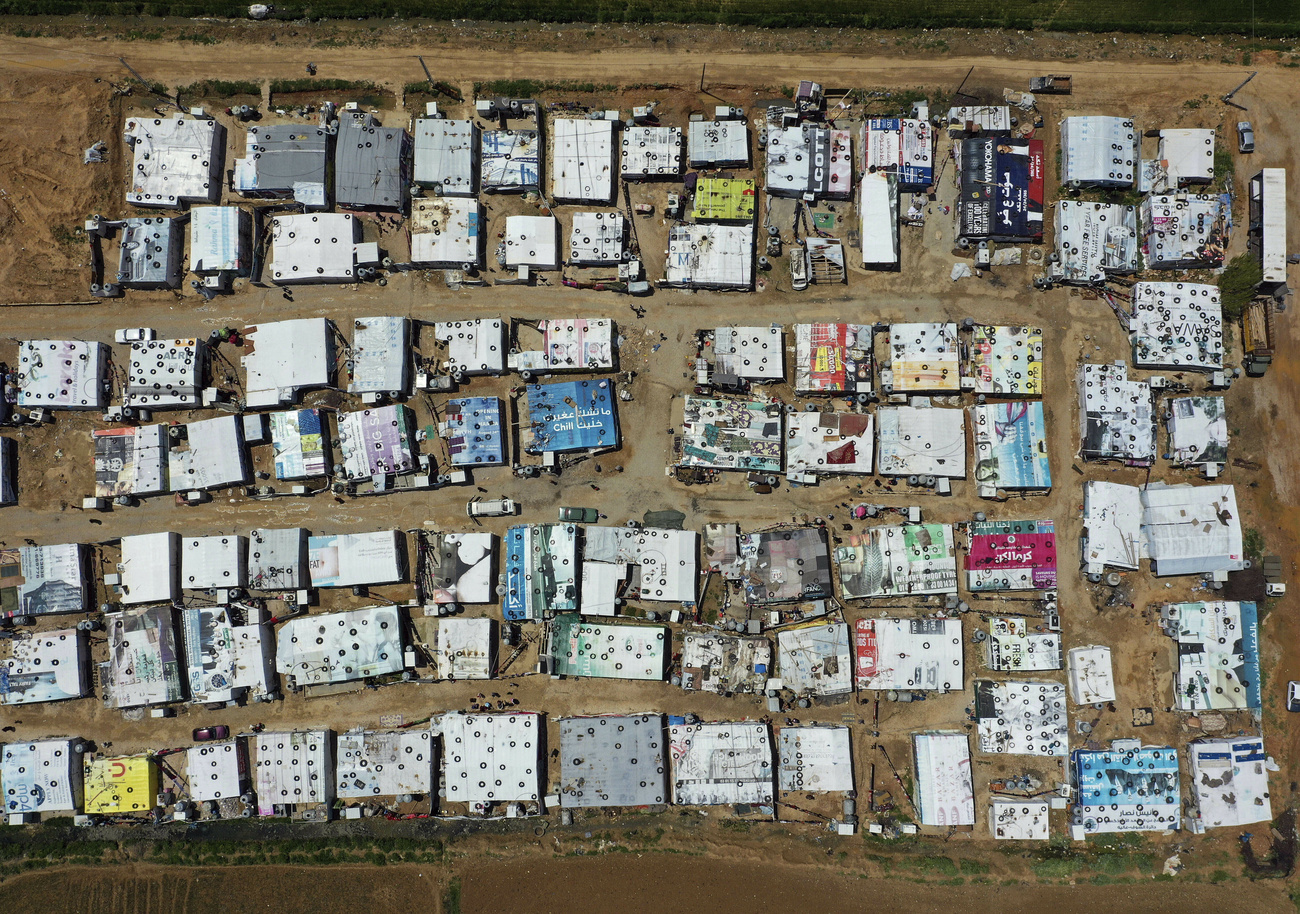
Swiss court to judge Lukashenko hitman

Yuri Harauski, former member of a hit squad under Belarus President Alexander Lukashenko, goes on trial in a Swiss regional court on September 19 for the enforced disappearances of three opposition figures in 1999. He has confessed to the crimes. An explainer.
What is this trial about?
Harauski, who was a member of the SOBR military unit sometimes known as “Lukashenko’s hit squad”, is accused of having participated in the kidnapping and murders of former Interior Minister Yury Zakharenka, former Deputy Prime Minister Viktar Hanchar, and Anatoly Krasouski, a businessman and close friend of Hanchar. They disappeared in Belarus in 1999. Harauski is also accused of having kept the story secret until 2019.
The case comes after relatives of two of the victims filed criminal complaints, supported by Geneva-based NGO TRIAL International, the International Federation for Human Rights (FIDH) and Belarusian human rights centre Viasna. These organisations also filed a criminal complaint. In a press releaseExternal link, TRIAL International described this case as “ground-breaking”.
It comes against a background of political repression in Belarus under Lukashenko, who has been in power since 1994. This has increased particularly after disputed 2020 elections that saw millions take to the streets in protest. The pattern of repression includes arbitrary detention and enforced disappearance, as documented by numerous organisations including the UNExternal link.
Why is it being held in Switzerland?
Harauski is resident in Switzerland, where he fled, reportedly in 2018. According to FIDHExternal link, Harauski appeared in the media in 2019, telling Deutsche WelleExternal link that he had been involved in the three disappearances and providing extensive details on the kidnappings and killings. TRIAL International investigated and was able to confirm his presence in Switzerland, in the eastern canton of St Gallen.
“According to the information available, he arrived in the country to seek asylum, arguing that his life was at risk given his will to speak out about his past involvement with the SOBR unit,” FIDH said.
Under Swiss law, the crime of forcibly disappearing another person “on behalf of or with the acquiescence of a state or political organisation” can be charged under the principle of “universal jurisdiction”. This also applies to any person who commits the offence abroad “provided they are now in Switzerland and not extradited”.
What’s at stake?
St Gallen-based lawyer Severin Walz is representing two of the victims, daughters of the disappeared. “For them this trial is a milestone,” he told SWI swissinfo.ch, “because it’s the first time in more than 20 years a person is being held accountable in a due procedure for the disappearance of their fathers”. He says it’s the first time the truth about what happened could be established in court, finally giving them some answers to the questions they have been asking ever since.
The fact that Harauski has confessed is also significant, he says, since the accused is contributing to establishing the truth.
And if he is convicted, this trial could have wider implications for accountability in Belarus. “An element of the crime is that the state is involved in the disappearance, and if he is convicted, that element is fulfilled,” Walz told SWI swissinfo.ch. That would mean the finger would be pointed at high-up officials, even Lukashenko himself, as having ordered the crimes.
Harauski could face a prison sentence of between one and 20 years. The defence is likely to plead for a reduced sentence owing to Harauski’s confession and willingness to give information.
Why is it being hailed as a first?
“For the very first time, a Belarusian national stands trial for enforced disappearance on the basis of universal jurisdiction,” says TRIAL International. According to FIDH, there is another case initiated in Lithuania against Belarusian security officers including Deputy Interior Minister Nikolay Karpenkov for alleged torture during the protests against Lukashenko’s re-election. However, the suspects are still in Belarus.
It is also a first for Switzerland, since it’s the first application of a provision on enforced disappearances introduced into the Swiss Criminal CodeExternal link in 2017. Article 185bis allows this crime to be prosecuted under universal jurisdiction as a stand-alone crime. That is the case in this trial, since it concerns three disappearances. That is also why it is being tried at the St Gallen district court in Rorschach, rather than the Federal Criminal Court, which would be the case if enforced disappearance were charged as part of an international crime (war crimes, crimes against humanity, genocide). Article 185bis was introduced into Swiss law after Switzerland signed the International Convention for the Protection of All Persons from Enforced DisappearanceExternal link.
“It’s the first time this Article 185bis is applied in a case, and that is special,” Walz says. “It also has European significance. I believe it is the first time that such an article is applied in a state that has signed this convention.”
What is expected to happen in court?
This trial is scheduled for September 19 and 20. It could be extended if the parties request more evidence and the court accepts. However, informed sources think this unlikely. Victims will be present and the accused himself is to testify. The fact that he has confessed means the procedure is relatively fast.
The court is likely to decide on the basis of the investigation and the testimony of the accused, according to Walz. A verdict could also come fairly quickly.

In compliance with the JTI standards
More: SWI swissinfo.ch certified by the Journalism Trust Initiative
































You can find an overview of ongoing debates with our journalists here . Please join us!
If you want to start a conversation about a topic raised in this article or want to report factual errors, email us at english@swissinfo.ch.